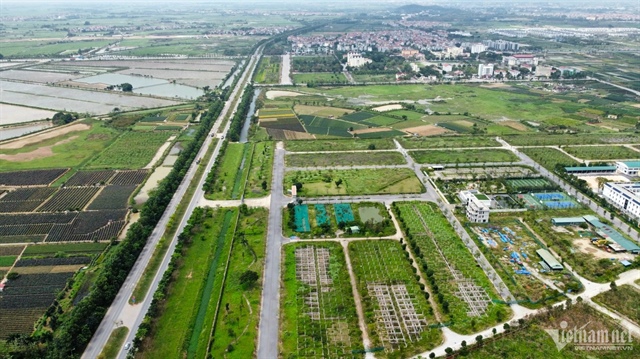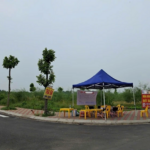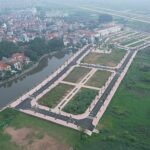As of August 1, 2024, a new provision in the 2024 Land Law officially “unshackled” the agricultural land segment, allowing individuals not directly engaged in agricultural production to acquire paddy field land through transfer.
Additionally, under the 2024 Land Law, residents whose agricultural land is subject to compensation will also benefit from enhanced compensation and resettlement policies in the event of land revocation.
Moreover, the land price framework in many localities has been adjusted, including an increase in the price of agricultural land. For instance, in Hanoi, the price of land for growing paddy and annual, perennial, and aquatic plants has risen by approximately 15%, peaking at VND 290,000/m2 in wards belonging to districts such as Ba Dinh, Bac Tu Liem, Cau Giay, Dong Da, Hai Ba Trung, Ha Dong, Hoan Kiem, Hoang Mai, Long Bien, Nam Tu Liem, Tay Ho, and Thanh Xuan.
The regulations regarding agricultural land prices within residential areas have also been made more flexible. Accordingly, the price of agricultural land in residential areas can be higher than that outside residential areas, but it should not exceed 50% of the corresponding agricultural land prices in other areas. This measure aims to encourage efficient utilization of agricultural land within residential zones while safeguarding the interests of land users.
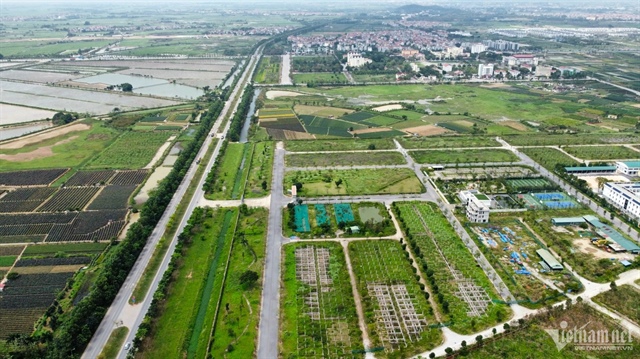
Agricultural land prices are rising, but proper usage is emphasized. Photo: Hong Khanh |
In Ho Chi Minh City, adjustments have been made to increase the price of agricultural land compared to previous rates. The city is divided into three areas and three positions. Area 1 comprises District 1, 3, 4, 5, 6, 10, and 11, as well as Binh Thanh, Phu Nhuan, and Tan Binh districts. Area 2 includes District 7, 8, 12, Go Vap, and Thu Duc City, along with Binh Tan, Tan Phu, and Gò Vấp districts. Area 3 covers the districts of Binh Chanh, Hoc Mon, Cu Chi, Nha Be, and Can Gio.
The revision of agricultural land prices in Ho Chi Minh City involved multiplying the land prices specified in Decision 02/2020 by coefficients ranging from 2.5 to 2.7.
After six months of the 2024 Land Law coming into effect, garden land and agricultural land continue to attract investors’ attention. Many anticipate that this segment will witness significant price increases in 2025.
Empirical observations indicate that investors have been actively seeking and acquiring agricultural land. Mr. C. Nguyen, an investor from Hanoi, predicts that the new land price framework will establish a new price level for garden land and agricultural land in numerous localities.
According to his calculations, the cost of converting land use purposes is expected to rise due to new regulations, leading to a potential shift in investment towards neighboring provinces to purchase agricultural land in anticipation of the next price hike cycle.
Regarding the concern of speculation in agricultural land, Mr. Le Van Binh, Deputy Director of the Land Department (Ministry of Natural Resources and Environment), suggested that the concept of speculation needs to be re-evaluated. He proposed that it should be viewed as an investment.
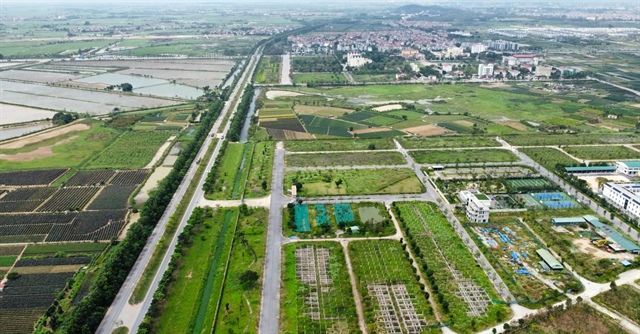
Mr. Le Van Binh, Deputy Director of the Land Department (Ministry of Natural Resources and Environment). Photo: D.V |
“Regarding agricultural land, I believe that the price increase reflects a correct assessment of its intrinsic value. The rise in agricultural land prices is attributed not only to the new price framework but also to the recognition of its enhanced value by the people. As a result, land users will place a higher value on their land, consciously investing time and effort to improve its productivity, thereby facilitating the transfer of agricultural land to those with a genuine need for it,” asserted Mr. Binh.
The Deputy Director also highlighted a significant change in the Land Law, which now permits individuals working in other sectors, such as civil servants and those passionate about agriculture, to acquire paddy field land through transfer. Additionally, enterprises can also receive the transfer of land use rights from households and individuals.
Addressing the concern of land speculation, he asserted that it is not a simple matter. When aggregating land, one must obtain permission from the state in accordance with the approved planning. During the compensation negotiation process, both individuals and enterprises are required to present authorization documents from state agencies.
“While the provisions of the Land Law have led to an increase in agricultural land prices, it is imperative to emphasize that the land must be used for its intended purpose. I am not concerned about speculation in this context. The primary worry at present is preventing the wastage and abandonment of agricultural land. With the rise in agricultural land prices, individuals can leverage their land advantages and devote more attention to nurturing their plots,” Mr. Binh emphasized.
Hong Khanh
– 05:50 13/02/2025
The Art of Crafting a Captivating Headline: “Ho Chi Minh City: Refining Land Lease Rates”
Introducing the ultimate guide to rental rates in Ho Chi Minh City! We are here to offer you an insightful look into the world of property rental, based on the official land price tables as per the HCMC People’s Committee’s Decision 02/2020 and the updated Decision 79/2024. With our expert knowledge, you can navigate the dynamic real estate market with ease and make informed choices. Discover the secrets to finding your dream home or investment property at the right price. Let us unlock the door to your future today!
Is There a New Opportunity for the Real Estate Market Post-Law Implementation?
The new real estate laws present a fresh opportunity for investors, but they also require a thorough understanding of the legal landscape, local planning knowledge, and a long-term vision. It is essential to be well-prepared and well-informed to navigate these new regulations successfully.
“Legislature Seeks to Temper the Real Estate Market, Avoiding a ‘Hot’ or ‘Frozen’ Scenario”
The resolution 161/2024/QH15 passed by the National Assembly requests that the Government directs ministries, sectors, and localities to take measures to regulate and promote a healthy real estate market. The aim is to prevent the market from either “overheating” or “freezing,” which could negatively impact the overall economic development of the country.

